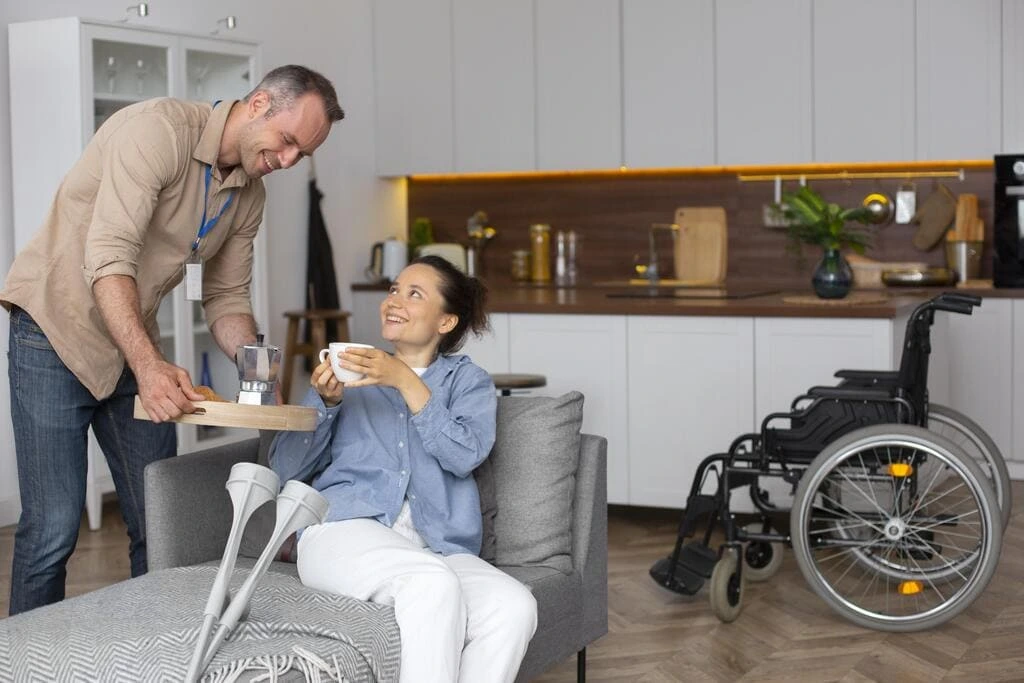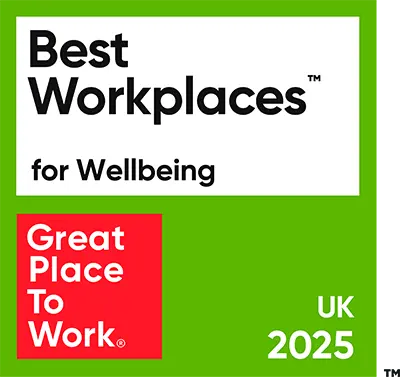Life transitions can be a challenging journey for everyone, especially for people with lived experience in institutionalised care. The potential for anxiety and distress is often increased when people transition from support settings and care environments. These transitions also affect people’s families and carers, who collaborate and adapt to the new life circumstances.
Successful transitions involve consistent and effective discharge planning created by multidisciplinary teams, health and social care professionals and families.
But most importantly, a successful community transition process puts the person at the centre of their care and decision-making.
Тhe Importance of a Successful Transition from Hospital to Community Care
Transitioning from hospital care to community support is a significant shift in people’s lives, and it requires effective, safe and personalised planning. A successful transition process also includes ongoing support in collaboration with the healthcare providers, multidisciplinary teams and people’s families.
When thinking about a successful transition from hospital to community care, here are the key questions we should focus on:
- Why is a smooth transition from hospital to community care crucial for a person’s overall well-being and recovery?
- How can a successful transition help prevent readmission to the hospital and ensure long-term stability in the community?
- What role does effective communication between hospital staff, care teams, and families play in ensuring a seamless transition?
- How does a well-managed transition support a person’s independence and quality of life as they move from hospital care to their home or community setting?
- What are the potential challenges people face during this transition, and how can proper planning address these issues?
The main goal of an effective community transition process is to ensure people’s safety, well-being and improved quality of life and that all their human rights will be met and respected. This includes providing the right community health services and support to create a nurturing and capable environment where people can thrive and flourish.
Integral Parts of a Successful Community Transition
A successful community transition is more than just moving into a new environment – it’s about ensuring that the person feels supported, understood, and empowered every step of the way. For people who require complex support, including autistic people or people living with a learning disability and mental health challenges, this process must be personalised to reflect their unique experiences, strengths, and aspirations.
By working closely with the person, their family, and a team of dedicated professionals, the transition can be smoother and truly meaningful. Whether it’s developing new skills, making adjustments to the environment, or providing ongoing emotional support, every aspect is tailored to encourage the person to feel confident, connected, and ready to embrace their new chapter in the community.
Effective Discharge Planning
The hospital-to-home transition starts with collaborating with commissioners focused on reducing delayed discharges. Healthcare providers work closely with care recipients, their families, and care teams to ease the transition through a method known as Bridging Support.
This approach involves creating a temporary, wraparound team for the person while they’re still in the hospital, providing proactive, holistic support tailored to their specific needs.
Often, this can significantly expedite their transition out of inpatient settings where they may have remained for an extended period. This is particularly vital for autistic people and people with learning disabilities, who are frequently held in mental health units without a formal mental health diagnosis. It’s critical to provide proactive care and help people receive the support they need in a comforting environment.

Personalised Care Plans
Personalised care plans within community transition services are tailored to meet each person’s unique needs as they transition from hospital or institutional settings to home or community-based care.
With a wealth of experience from organisations like the NHS and the National Autistic Society, LD Network’s team is dedicated to empowering people to reach their full potential, build on their strengths, and live fulfilling lives.
Our approach emphasises person-centred support, collaborative care and decision-making while reducing restrictive practices.
Interdisciplinary Collaboration
Interdisciplinary collaboration is vital in ensuring successful community transitions. At LD Network, we collaborate closely with our internal multidisciplinary team, which includes Positive Behaviour Support (PBS) specialists, speech and language therapists, occupational therapists, and community psychiatric nurses (CPNs).
Our main focus is on promoting people’s well-being and successful integration into community living, while ensuring that the incoming care provider can continue offering support for as long as necessary. Our goal is to prevent unnecessary hospital readmissions by identifying and addressing any challenges that may arise.
Person-centred Care
A person-centred approach in community transition services is comprehensive. It emphasises treating each person as a unique individual, ensuring their choices, values, and preferences guide every aspect of care and support.
It goes beyond meeting basic medical needs, focusing on empowering people to lead fulfilling lives as they move from hospital or institutional settings to community or home-based care.
This approach values the person’s autonomy, dignity, and rights while fostering collaboration among care recipients, families, and multidisciplinary teams. It ensures that people are active participants in shaping their care plans, which are designed to reflect their strengths, goals, and aspirations.
Person-centred care also prioritises reducing unnecessary restrictions, promoting independence, and ensuring people have the tools and support needed to thrive in their community environments.
By addressing emotional, social, psychological, and practical aspects of well-being, person-centred care in transitions ensures a holistic, personalised experience aligned with each person’s unique journey.
Home Care and Housing Accommodations
Navigating life after discharge can be challenging for autistic people, people living with a learning disability, and people with mental health needs. With a lack of adequate support in community settings, people may experience feelings of vulnerability and isolation. The transition can often feel overwhelming, especially without the necessary resources and understanding.
Post-discharge care plays a crucial role in this journey. When the healthcare system does not provide adequate follow-up support, people may face unnecessary complications, leading to increased stress and even the risk of readmission to hospitals.
Common challenges people may encounter include:
- Feelings of Vulnerability: Without proper support, people may feel overwhelmed and anxious about their new circumstances.
- Risk of Readmission: Insufficient follow-up care can lead to complications that may result in returning to a hospital setting.
- Social Isolation: Inadequate community resources can leave people feeling disconnected, making it difficult to engage socially or access essential services.
- Housing Insecurity: Lack of tailored housing accommodations can create instability, impacting overall quality of life.
To foster a more supportive environment, people’s homes must be personalised and adapted while ensuring crucial support is in place to meet their physical, social and emotional needs. By addressing these needs with compassion and understanding, we can create a smoother transition that empowers people to thrive in their communities and live fulfilling lives.
Community Transition Services with LD Network
With extensive experience working with organisations like the NHS and the National Autistic Society, our therapy team is dedicated to empowering people to achieve their full potential, harness their strengths, and live fulfilling lives.
Our approach focuses on person-centred support, emphasising collaborative care and decision-making while minimising restrictive practices.
We employ a proactive and comprehensive strategy for discharge planning and transition support, which includes:
- Functional assessments
- Cognitive behaviour assessments
- Environmental assessments
- Practices aimed at reducing restraint
- Specialised support strategies in Eating, Drinking, and Swallowing
- Assistance with proactive, active, and calming techniques
- Use of Talking Mats, a visual communication tool for those with communication challenges
- Support for people exhibiting single or multiple behaviours of concern
- Help with multimedia and assistive technology (including multimedia avatars, visual charts, and video stories)
- Trauma-informed care
- Teletherapy
It’s not about people adapting to a new space; it’s about us adapting to their needs. Our goal is to be like an extended family, providing the support and understanding that helps people feel at home in their new environment.
We are committed to bringing people home with our community transition support. For more information, check our case studies.
Contact us today for urgent transitional and crisis support!












